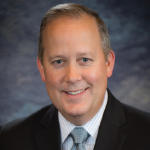TR: What are your thoughts on how the ACR can address the projected future pressure on the rheumatology workforce?
SE: Dealing with the challenge of increasing demand for rheumatology care requires innovative ideas. We should consider appropriate multidisciplinary approaches to ensure timely access to care for patients. Advances made in healthcare IT [information technology] infrastructure, more advanced communication, and connected medical devices that enable clinicians to evaluate, diagnose and treat more patients remotely could be one solution. The ACR understands the everyday issues that community rheumatologists face. A structure is already in place for the ACR to play a leading role in improving care at the local and federal levels. ACR volunteer leaders and professional staff have become recognized sources of information and collaboration on many issues, and we will continue to work to increase the visibility of the specialty.
TR: You’ve been extensively involved with ASAE and say that you’re passionate about what ASAE calls the “Power of Associations.” What have you gained from your advanced leadership training, mentorship and serving as a thought leader in your profession of association management?
SE: One of the great things about being involved in my own professional society is that it gives me a different perspective on what is required to help volunteer leaders be successful—what it takes to work as a leader, including the appropriate relationship with staff, what resources you can provide to your volunteer leaders, and what support they need from staff. My experience serving on the ASAE board allows me to have a better understanding of different levels of association leadership, and what it takes to be considered a leader in a professional organization. You have to be considered a real thought leader to rise up in any organization.
Susan Bernstein is a freelance journalist based in Atlanta.



